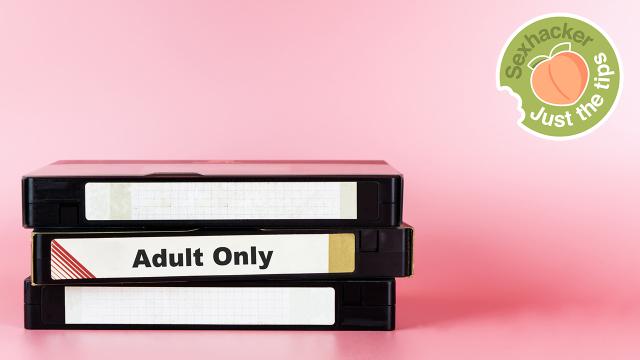First things first. The topic of porn is a pretty taboo one, like a lot of elements attached to sex. What that does is limit the number of healthy conversations on the area, which prevents us from discussing things like the importance of investing in ethical porn; the disconnect between traditional porn scenes and normal sex and the only very recent exploration of women-focused porn platforms.
We don’t have time to dive into all of that today. But looking at the issues surrounding porn more openly is a great place to start, so let’s do that, yeah? Today, we’re exploring a particularly interesting topic of discussion: Porn addiction, and whether or not it is a ‘real’ condition.
To help with this, I’ve spoken with our pal Dr Lurve, a love and relationship expert, as well as Nancy Sokarno – a psychologist with Lysn.
To start, what is porn addiction?
The reason porn addiction is such a tricky issue is not just because of porn’s intimate and taboo nature, but because the condition hasn’t ever been officially categorised. As Dr Lurve pointed out over email, “neither the DSM-5 (a manual for assessment and diagnosis of mental disorders) nor the ICD-11 (the eleventh revision of the International Classification of Diseases) classify pornography as a mental disorder or addiction”.
But a compulsive need to watch or engage with pornography is no less of a difficult experience, just because it hasn’t been officially named as a mental health condition, Sokarno stated.
“Porn addiction can be an isolating and misunderstood behaviour that can not only affect the person with the addiction, but those around them,” she said.
“While porn addiction hasn’t yet been classified, it is often still widely recognised as a compulsive behaviour that has implications on a person’s mental health.”
Why is it addictive to some?
Aside from the obvious point that it’s a turn-on for many people, there are few reasons why folks like to engage with porn.
Dr Lurve explained that it can extend to a form of satisfaction or release for people who have trouble with partners sexually, experience “sexual issues related to trauma or [have] disturbing urges”.
“…when a person views porn, it triggers several neurochemical reactions in the brain. These reactions produce high levels of dopamine secretion which create a ‘high’, which makes a person feel good and is intensified if they orgasm,” she explained.
This dopamine released, she continued, is consistent with other addictive experiences. This is why some may develop a compulsive reliance on porn.
How to tell if someone is addicted to porn
As with any other addiction experience, there are a number of symptoms to look out for here. Sokarno explained:
“Emotional symptoms of an addiction can range from irritability when unable to participate, lying to people about the act and isolating themselves from others in order to spend more time doing it.”
It’s worth pointing out here that this goes well beyond the simple enjoyment of porn. The American Psychological Association, for example, writes of psychologists sharing reports of people getting fired after struggling to control urges to watch pornographic content at work. And while the official classification of the addiction hasn’t been settled as yet, health experts are still exploring how it impacts the brain.
The good news, however, is that there are ways to treat various compulsive behaviours, Sokarno shared with me.
“If you or someone you know experiences symptoms likely related to addiction, consider seeking the help of a professional. People suffering from addictions can be treated with psychological therapies as well as some medicines.”
Is porn a bad thing, then?
Certainly not. Just because some people struggle with compulsive behaviours or addiction when it comes to porn, does not mean that it is an innately problematic form of entertainment.
As the APA shares on its website, a Kinsey Institute survey found that “9 per cent of porn viewers said they had tried unsuccessfully to stop” engaging with adult content. So, going by this data, we could say it’s certainly not impacting the majority of people.
In some cases, exploring porn can be an empowering sexual act – especially for women.
But it’s only through more research and open discussion that we can come to understand all of this a little better. If you’re worried about your relationship with porn, reach out to a mental health professional for advice.

Leave a Reply
You must be logged in to post a comment.